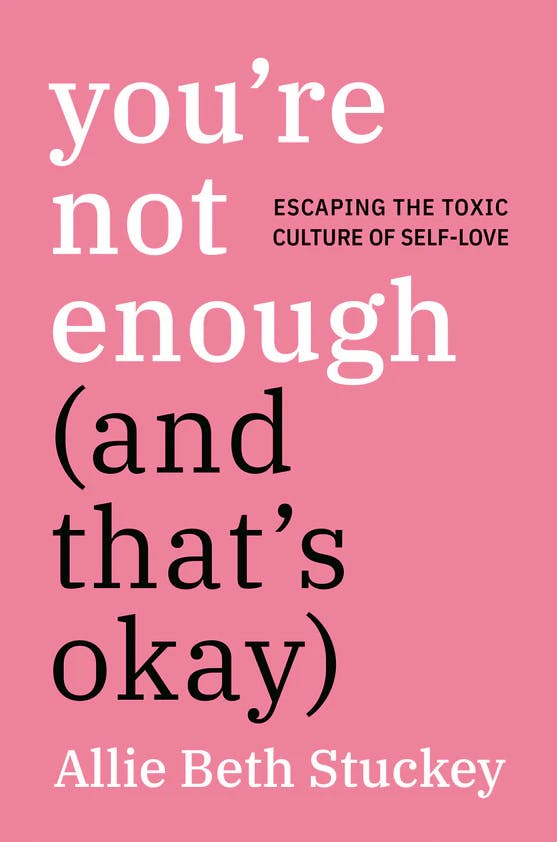You’re Not Perfect The Way You Are (And That’s Okay)
Remember middle school? What a weird time. Everyone is so painfully self-conscious because we don’t understand our bodies and we don’t know what to do with hands.

These are what I call personality-building years. The cuteness that helped us get our way has faded, and we’re forced to develop a sense of humor to make friends and cope with the awkwardness of life.
As girls, we start to want to do things that make us feel older, like wearing makeup or shaving our legs. For me, one of those things was getting my eyebrows waxed. I really wanted to, but my mom wouldn’t let me. She said I didn’t need it, and she was right. But that didn’t stop me from taking a razor from her shower, standing in front of the mirror in my bathroom, and slashing one of those babies in half. Immediate regret. And, of course, school pictures were the next day. Not my best.
It’s early on in our lives that we women are caught up in what I call the paradox of perfection: hearing and believing we’re perfect while simultaneously hearing and believing there’s something else we need to do or have (or not do or not have) to make us perfect.
Girls are told from a young age by our parents and teachers that we’re perfect the way we are. And to some degree, we believe it — even in our awkward middle school years. We’re confident that if we could just get our hair to crimp the right way, if our parents would let us wear just a little bit of mascara, if we could just get our eyebrows waxed, maybe — just maybe — we’d finally be able to manifest the beauty and perfection we know is there.
We’re confident that if we could just do X, then we’d finally be able to manifest the perfection we know is there.
The paradox of perfection follows us throughout our lives, showing up in more profound ways. Today, we most often see it in the online culture of self-love and self-help. In her bestselling book You Are a Badass, Jen Sincero writes: “You are… You are the only you there is and ever will be. I repeat, you are the only you there is and ever will be. Do not deny the world its one and only chance to bask in your brilliance.”
Sincero’s sentiment is a popular one in this world of trendy narcissism: who you are on the inside — who you really are — is perfect. And all you have to do is manifest that perfection, and you’ll be happy, successful, and whole.
The “manifesting” is often in the form of things like reading a book, repeating positive mantras, applying certain principles, organizing our belongings, or cleaning up our diet. The paradoxical messages tend to sound something like this: “You’re perfect...and this book will help you realize it.” “You’re perfect...and you need to understand your sign to manifest that perfection.” “You’re perfect...and repeating these ten mantras will convince you it’s true.” “You’re perfect...and mastering your personality type will prove it.”
“You’re perfect the way you are” is a Trojan horse for a product that promises to make our lives better.
“You’re perfect the way you are” is a Trojan horse for a product or a program that promises to make our lives better. This means that without these products and programs, it’s an empty mantra. If we were perfect just the way we are, we wouldn’t need their quick ten steps to make any improvements on ourselves or our lives.
Motivating this paradox is a philosophy that views self-discovery as the road to self-acceptance, or to the actualization of our perfection. Along the road of self-discovery are all kinds of external forces holding us back from realizing, embracing, and manifesting our true perfect self.
Consider these quotes from two popular self-love-centric Instagram accounts:
“Society has led us to believe our goal is to be beautiful, because according to the white supremacist capitalist patriarchy, beauty = value.” @recipesforselflove
“Our dominant culture actively profits from you believing that you are not worthy of love.” @emilyonlife
The common theme is that society’s standards, social constructs, stigmas, your parents, your boyfriend, capitalism, the patriarchy, mercury in retrograde, and so on are all repressing your true, uninhibited self and are therefore damaging your potential for a great life. If you can just relieve yourself of the unfair burdens these people and systems place on you, you will finally discover your authentic self and find the fulfillment you’ve been longing for.
The common theme is that society’s standards, capitalism, etc. are all repressing your true, uninhibited self.
From this perspective, you don’t have flaws — you have underappreciated qualities. You haven’t made mistakes — you’ve made decisions the “shame culture” wants to guilt you for. You’ve never failed — you’ve simply rejected society’s unrealistic standards of success.
In Girl, Stop Apologizing, Rachel Hollis argues: “For the average woman, the story goes something like this. When you came into the world you were totally and utterly yourself. It wasn’t a conscious decision to be exactly who you were; it was instinct. Then, something changed. Something big happened, something that would shape the rest of your life, even if you have been aware of it at the time. You learned about expectations.”
The underlying premise is that who you are deep down is perfect and pure, like a diamond in the rough, and when you chip away at the layers of social norms and arbitrary expectations that have held you back, you’ll actualize that reality.
Where’s the lie?
First, let’s acknowledge what’s true about this mindset. Some expectations are repressive and harmful. You don’t have to be a size 2 to be beautiful. You don’t have to perfectly balance work and motherhood to “have it all.” You don’t have to be independently wealthy before you’re thirty to be successful. You don’t have to be quiet to be kind or loud to be bold. Society shouldn’t dictate who you are or what you should do.
Some expectations are repressive and harmful — you don’t have to be a size 2 to be beautiful.
You are an individual, which means your life isn’t going to look like anyone else’s. You have your own talents, your own personality, your own strengths and weaknesses. Some people’s criticism of you will be misguided or a result of simply misunderstanding you. These criticisms can be ignored.
Therefore you will have to make hard choices, take responsibility for your own life, and get out of unhealthy relationships.
But none of these things will ever make us perfect because “who we really are” isn’t some flawless goddess marred by unfair societal standards or unhealthy relationships.
You are not perfect the way you are, and you never will be.
“You’re perfect the way you are” leads to accepting parts of ourselves that we should be rejecting, making excuses for ourselves when we should be repenting, and believing things about ourselves that hold no lasting value.
This is an excerpt from You're Not Enough (And That's Okay): Escaping the Toxic Culture of Self-Love by Allie Beth Stuckey published by Portfolio, an imprint of The Penguin Publishing Group, a division of Penguin Random House, LLC. copyright © 2020 by Allie Beth Stuckey
